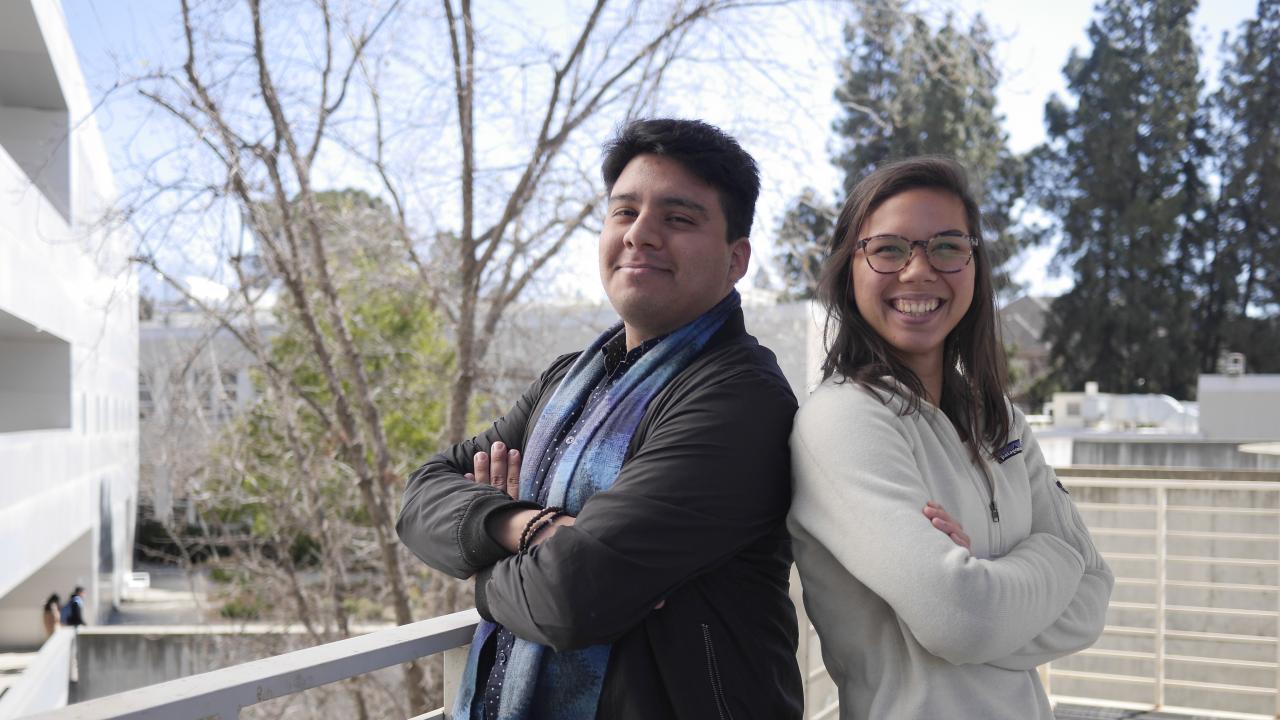
Minor Helps Students Tackle Human Rights Issues
When Liz McAllister transferred to UC Davis in 2016, she didn’t expect that she would be able to study human rights, much less go to Lebanon to work with Syrian refugees.
McAllister’s work in Lebanon is just one way she takes on human rights issues. A fourth-year design major and human rights minor, McAllister says she encounters human rights issues every day in every corner of her life.
“I was really excited to see that [UC Davis] has a human rights minor,” said McAllister. “I thought, ‘I am going to sign up for that right away.’”
A growing community
The Human Rights Studies Program is the fastest growing program in the College of Letters and Science, according to director Keith David Watenpaugh.
“The Human Rights Studies Program, which was established by the university in 2015, grew out of a university-wide commitment to empower our campus community with ways to explore and promote the human rights idea,” said Watenpaugh. “Human Rights Studies students share a common goal of bringing the human rights idea to their broader undergraduate studies, and then translating that into an effort to do good in this world.”
Human rights students come from a variety of majors, including sociology, international relations, history and religious studies.
"It is very much a growing community, as people continue to want to take on this minor,” said Oswaldo Vargas, a fourth-year history student who minors in Jewish studies and human rights.
Vargas is also a peer adviser in the Human Rights Studies Program and has advised students from many disciplines, including those in STEM majors.
In and beyond the classroom
In their courses, students learn about the concept, origins and practice of human rights, and study topics such as genocide and apartheid. “Not only do they understand what human rights are, but how they are violated and what tools and techniques can be employed to restore, protect and promote them,” Watenpaugh said.
These lessons transcend the classroom and shape students’ career paths and their perspectives on these issues.
Rachel Pevsner (B.A., English, ’12) is using what she learned through the human rights minor to inform her teaching of at-risk youth attending YouthBuild Charter School in Fresno, California.
In conjunction with her English lessons, she teaches her students how to recognize rights and stand up for themselves and others. “I incorporate human rights into my lesson plans and the structure of my classroom, so that it is more equitable,” Pevsner said.
Beyond lesson plans, Pevsner says her study of human rights “shaped my career certainly but also my politics, my relationships.”
For McAllister, Human Rights Studies has provided an entirely new lens through which she can view problems.
“It's made me think really critically about how I define my actions and my perspective on, and it's forcing me to create these concrete steps to do something about what I care about,” she said.
A hopeful future for human rights
Despite the heavy topics in her courses, McAllister remains optimistic, thanks to the community of human rights students and faculty. "Being a human rights minor has given me a lot of hope that there are other people out there who are just as passionate about these topics as I am,” she said.
McAllister is not alone in this sentiment.
"You see the most depraved things people have done. Seeing people's earnest efforts to change things and keep going – it's an inspiring thing," Vargas added.
As for the future of the Human Rights Studies Program, Watenpaugh hopes that as the program grows, there will be even more opportunities to help students achieve their goals.
"We’d also hope to develop ways to better support students doing internships here and overseas, and work with Global Affairs to develop human rights-centered study abroad opportunities,” Watenpaugh said. "Among our goals is to create a human rights major, which will be the first of its kind in California.”
Until then, the program will continue to support students’ efforts to do good in the world.
Read Liz McAllister's account of her work in Nepal.
Learn more about Article 26 Backpack.
-- Jeanette Yue, undergraduate intern in communications and marketing in the UC Davis College of Letters and Science
SaveSave
